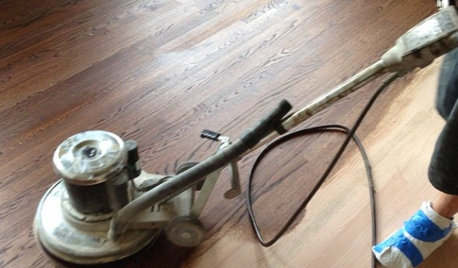Why is herbal research important?
rusty_blackhaw
9 years ago
Related Stories

KITCHEN DESIGNHow to Pick Your Important Kitchen Appliances
Find the ideal oven, refrigerator, range and more without going nutty — these resources help you sort through your the appliance options
Full Story
TRADITIONAL ARCHITECTUREHow to Research Your Home's History
Learn what your house looked like in a previous life to make updates that fit — or just for fun
Full Story
LIFEWhy We Want a House With a Great View
Research shows that just looking at nature has powerful mental benefits. Here's how to get a boost — with or without a million-dollar view
Full Story
DECORATING PROJECTSWhat to Do With Old Family Photos
Find out how to research, share and preserve images that offer a connection to the past
Full Story
HOUZZ TVHouzz TV: Grandmother and ‘Mad Men’ Inspire a Home
A Chicago man receives family furniture and researches his way to midcentury style, from Mamie Eisenhower walls to Atomic Age decor
Full Story
GREEN BUILDINGHow to Start Finding a Greener House
On the hunt for a more ecofriendly house? Here are the questions to ask and research to do
Full Story
ARCHITECTUREMust-Have Book: ‘A Field Guide to American Houses’
Be the architectural historian of your neighborhood with this invaluable updated version of a well-researched classic
Full Story
HOUZZ TOURSHouzz Tour: An 1850s Ancestral Home in Texas Rises Again
See how exacting research and meticulous renovations gave a retired couple their dream home on a regained family plantation
Full Story
GREAT HOME PROJECTSWhat to Know Before Refinishing Your Floors
Learn costs and other important details about renewing a hardwood floor — and the one mistake you should avoid
Full Story
WORKING WITH PROS5 Steps to Help You Hire the Right Contractor
Don't take chances on this all-important team member. Find the best general contractor for your remodel or new build by heeding this advice
Full Story





lazy_gardens
rusty_blackhawOriginal Author
Related Professionals
Erie Landscape Architects & Landscape Designers · Finneytown Landscape Architects & Landscape Designers · Aurora Landscape Contractors · Emmaus Landscape Contractors · Mastic Beach Landscape Contractors · Monterey Landscape Contractors · Rosemount Landscape Contractors · South Hackensack Landscape Contractors · Wayland Landscape Contractors · Merrifield Landscape Contractors · Cypress Carpenters · Round Rock Carpenters · Edison Roofing & Gutters · Marlboro Roofing & Gutters · Clarksville Roofing & GuttersSumatra
rusty_blackhawOriginal Author
Sumatra
lazy_gardens
rusty_blackhawOriginal Author